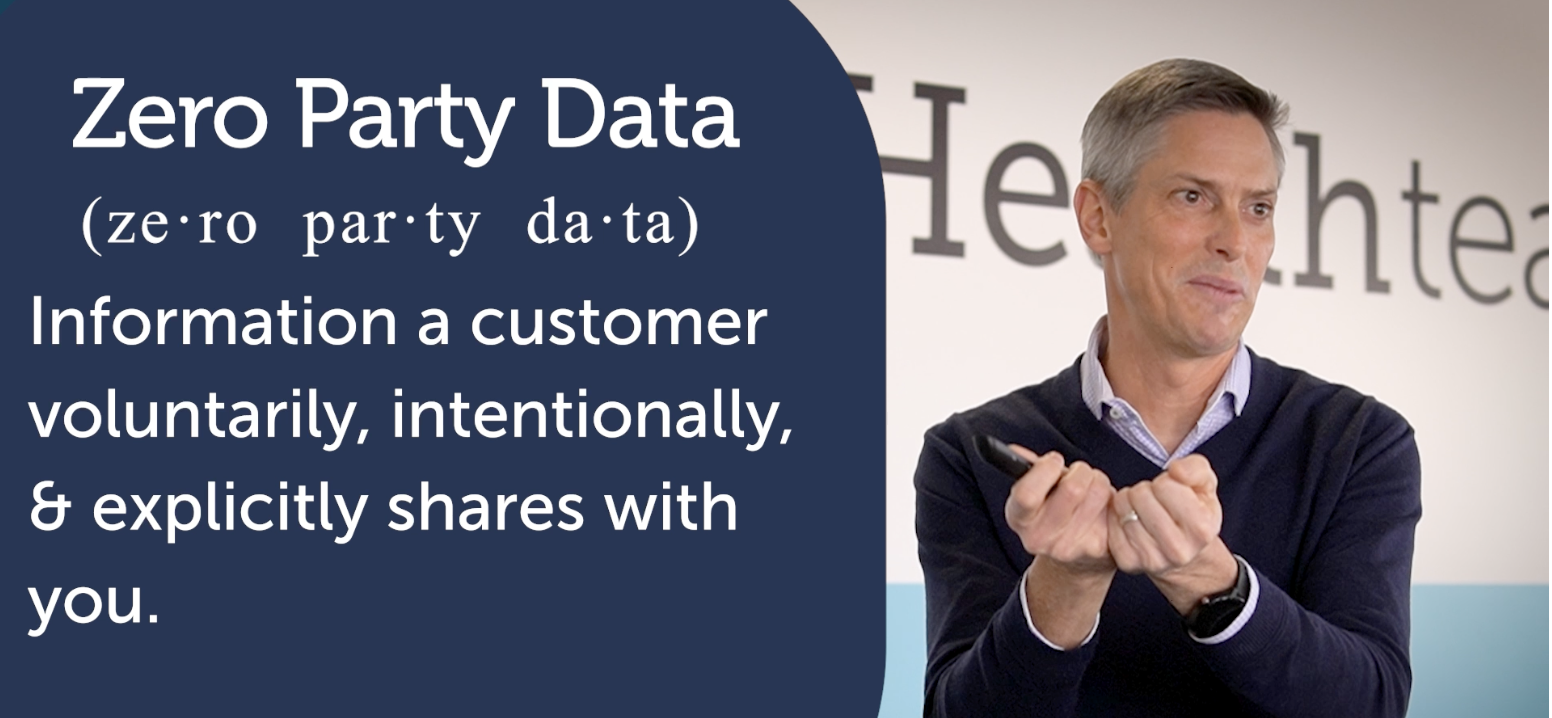Zero Party Data Defined in 30 Seconds and Why It Matters to Health Marketers
By Eric Peacock, CEO and Co-founder, MyHealthTeam

What Is Zero Party Data?
You may have heard the phrase “zero party data,” but you’re still wondering what it means. Zero party data is information a customer intentionally and proactively shares with a company, typically with the expectation that the company will use that information to deliver some sort of personalized value to the customer. For instance, when a person with psoriasis joins MyPsoriasisTeam, they create a profile sharing their subdiagnosis (e.g., plaque psoriasis), age, date of diagnosis, symptoms, city, treatments, and so on. That allows us to personalize the “info and intros” we share with them. We surface medically approved content that is directly relevant to them, and we introduce them to others on the platform with similar characteristics so they can compare notes.
How Health Marketers Are Building Authentic Connections With Patients
Zero party data is the key to building authentic connections with people facing chronic diseases, and it comes with great responsibility. First, patient privacy is critical. Guard zero party data with your life. Don’t sell it to third parties or use it for anything other than what that patient signed up for. When you partner with companies like MyHealthTeam team to reach patients with a specific disease, rely on them to do that targeting, as you will not have access to their zero party health databases.
Second, in exchange for receiving a person’s zero party health data, a publisher or organization has a responsibility to act upon it and provide a personalized experience. The more relevant and actionable the information you provide to a person who has shared their health data, the more proof they have that you’re adding value and you understand what it’s like to be in their shoes. This creates authenticity for your brand, and it often leads to people wanting to share even more personal health information.
Zero party data means there is no need for a publisher, or a brand who partners with that publisher, to infer what an audience — or a subsection of an audience — wants or needs. It is known, reliable, and exact. Publishers can use it to create more personalized customer experiences, which leads to better health outcomes and higher engagement rates.
Planning for the Year Ahead
As you shift and test marketing tactics in Q3-Q4 and start your planning for next year, and before Google begins to deprecate third-party cookies in favor of its “Privacy Sandbox” in Q1 of 2024, now is the time to begin building your zero party data partnerships and strategies. If you would like ideas specific to the therapeutic area or disease you manage, please reach out to us at partnerships, or post a comment below.

